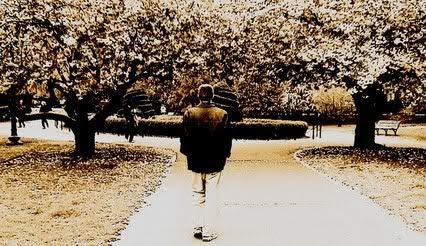War
is Brutish, inglorious, and a terrible waste…until the millennium arrives and
countries cease trying to enslave others, it will be necessary to accept one’s
responsibilities and be willing to make sacrifices for one’s country – as my comrades
did. As the troops used to say, “if the
country is good enough to live in, it’s good enough to fight for.” With
privilege goes responsibility.” – With the Old Breed at
Peleliu and Okinawa, E.B. Sledge
Having read Sledge’s account of his units time in
World War II, while I can understand how he came to the conclusion he did, it
is nonetheless a conclusion that I cannot agree with. To the contrary, his account deepens my
horror and revulsion for war: for the senseless loss and waste of resources and
people; for the individuals being used as pawns to further political objectives
(whether these be good ends or evil ends); for the terrible effects on civilian
populations who are dragged into and feel the more lasting effects.
Is there such a thing as a ‘justified’ war? I do not know. This is a subject that knaws deeply on my
soul and intellect. Is there a time when
war IS the last resort? Can there be a
noble war? Was there another way besides
the Second World War, when clearly peace was not the objective of such
megalomaniacs as Hitler? Is war
justified to save civilian populations, such as police actions taken in
Congo? What about the plight of the Jews
in Nazi controlled Germany? And what of
the freedoms achieved through the revolt of the American Colonies against
England? Once again, I have no answers to these questions. These questions are valid, and deserve
answers. And the answer may eventually
be that there is no right or wrong answer or method to deal with these moral
paradoxes. However it may be, I will
continue to visit these thoughts, apply new concepts and knowledge and continue
to seek truth and enlightenment. And
even if I cannot ever answer these questions as to the ‘national morality’ or ‘character
of a people,’ I undoubtedly will eventually be able to answer these
sufficiently in regards to my own condition, and the path that is the right
path for me as an individual. This may
well embrace defensive war, or the protection of the humanity and inner light
of others. It also might well embrace
complete pacifism.
What I do know at the present time is that ‘offensive
war’ does weaken and diminish a ‘national character.’ No matter the reasons for
deciding to engage in it, War is an animal all to herself, and one well to be
personified by the Greeks, Hindis, and other cultures. War does not address the root causes of
conflict, but rather the symptoms. Through use of passion, it is hoped to
either enshrine or annihilate the pride or morale of a people, which is another
passion. When passion and passion
collide, they result in further passion.
Reason and Logic are the two tools which seem to be able to hold passion
in check and create environments that address root cause and sow the potential
for more lasting results. Passion is
quick, it looks to the short term, and her fruits appear quick enough, turning
to rot as they fall from the mother tree.
Reason is long suffering, slow, yet nurtures in a way that maintains the
dignity, respect, and addresses the root concerns of causation. With Reason, the tree is carefully pruned,
fertilized, and endures sometimes long periods of hibernation to eventually
produce a bounteous harvest.
From what I can determine, War only permanently solves
three problems: overpopulation, unemployment, and a national disunity. And these problems are ones which are best
not solved by war, as two are solved by the brutal elimination of hundreds of
thousands of souls, the third once again only briefly mended and built on often
lofty and noble, but correspondingly false and ideologically entrenching
sentiments. These problems are best
solved as is war herself, through reason and logic. Like Polonius’ advice to
his daughter Ophelia (while specifically addressing the passion of love, but
can be also said of all resorts to passion): When the blood burns, how prodigal the soul lends the tongue vows:
these blazes, daughter, giving more light than heat, extinct in both, even in
their promise, as it is a-making, you must not take for fire.
War’s ends are further war, as seen by nearly every
conflict in history, most powerfully by World War I and II. While many would point to Hitler and the
necessity to wage war to destroy his evil ambitions, I would point out that
Hitler’s rise was enabled through World War I, and the failings to address the
cause of Germany’s conflict. War
destabilizes; destroys world knowledge and cultural works of art; leaves
populations in states of famine, stripped of depended upon natural resources,
and tears holes in the fabrics of families and communities; creates a
dependence on overly simplistic military solutions rather than diplomatic
agility and skill; and breeds fear, corruption, and loss of direction for a
people (in-fact war becomes the focus of direction, and with its end leaves the
participants shattered, listless and with a shattered rudder).
I believe that non-violence can be achieved, and
that its means creates a healthier environment in which more lasting peace are
the results. I vow as long as I believe
in its abilities to heal and solve the deeper root causes to devote my life to
this cause, to be a teacher in an unpredictable and low-yielding field, to
continue the work which has the greater potential for defusing the crisis that
we see so regularly. This is my work, my
purpose, and my passion.
.jpg)